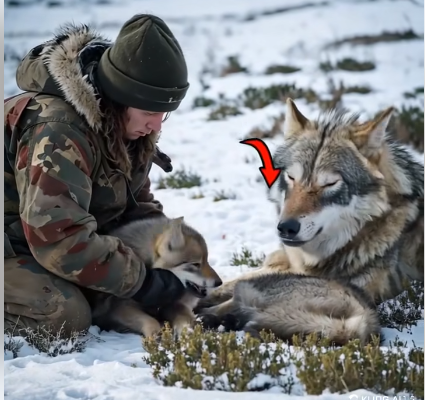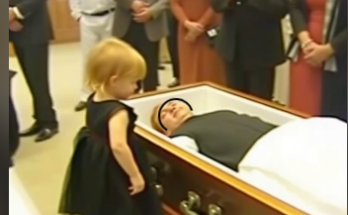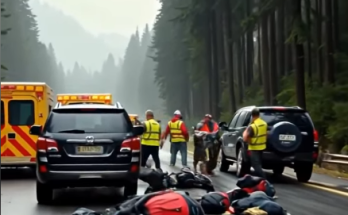In the deep folds of a forgotten mountain range, where frost eats the ground long before winter arrives and trees grow gnarled like the hands of old men, lies a village not found on any GPS. It is a place of hush and howl, where traditions are as thick as the snowdrifts, and where the wind speaks in tones only the elders claim to understand.
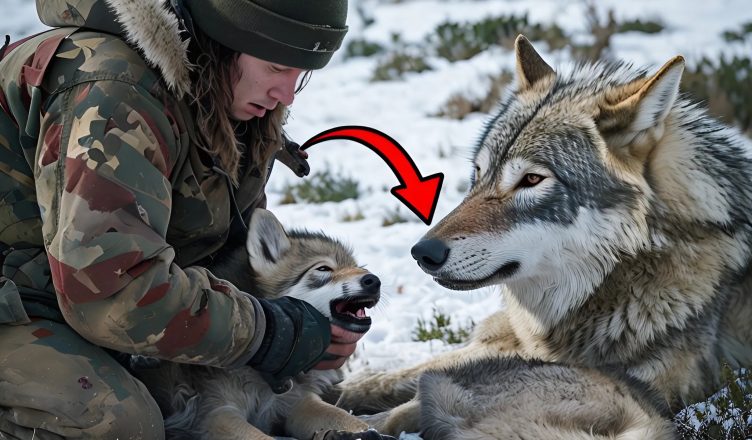
It was near dusk when Thomas, a reclusive woodworker in his late fifties, heard it. A sound no one forgets once they hear it for the first time. Not a human scream, but something more ancient. Wounded. Fragile. A high-pitched, whimpering cry that rose and fell like a breath trying not to die.
He was returning from the forest trail, carrying a bundle of pine logs on his shoulder when the sound brought him to a full stop. It came from beyond the bend, near the cliffs where no one dared to wander. Following the sound, Thomas discovered a sight that gripped his soul.
A wolf cub, barely larger than a housecat, lay wedged between jagged stones, one leg twisted unnaturally. Its fur was matted with blood, and its chest rose in sharp, shallow gasps. It did not growl. It did not try to run. It just looked at him—pleading.
Thomas knew the rules. In this village, you do not interfere with nature’s way. Especially not with wolves. They were sacred to some, feared by others, but understood by all to be left alone. Still, he couldn’t walk away.
With practiced, steady hands, he freed the cub, wrapped it in his jacket, and carried it home. He cleaned its wounds, splinted the leg with an old ruler and twine, and fed it broth with an eyedropper. All night he watched it breathe beside the fireplace, unsure if it would live or die. He didn’t notice the eyes watching through his window until he turned to stoke the flames.
Two amber orbs, unblinking, fixed on him from the darkness. A full-grown wolf. The mother.
She stood there, unmoving, her fur rimmed with snow. She did not bare her teeth or snarl. She did not make a sound. She simply stared through the glass, watching her cub.
Then she vanished into the woods.
The next morning, the cub was stronger. It even tried to limp across the floor. Thomas, knowing the mother would still be near, carried it back into the woods. He returned to the place where he found it, gently placed the cub on the moss, and waited behind a tree. Minutes passed. Then an hour.
When she came, she came without sound.
She sniffed her cub, nudged it gently, then turned her head—toward Thomas. Their eyes locked. Not in challenge. Not in fear. In acknowledgment.
She took her cub in her jaws and disappeared.
Thomas walked home in silence, unsure whether what he did was right, or whether it had been a mistake that would echo through nature’s balance.
What happened the next day silenced any doubt—and shocked every living soul in the village.
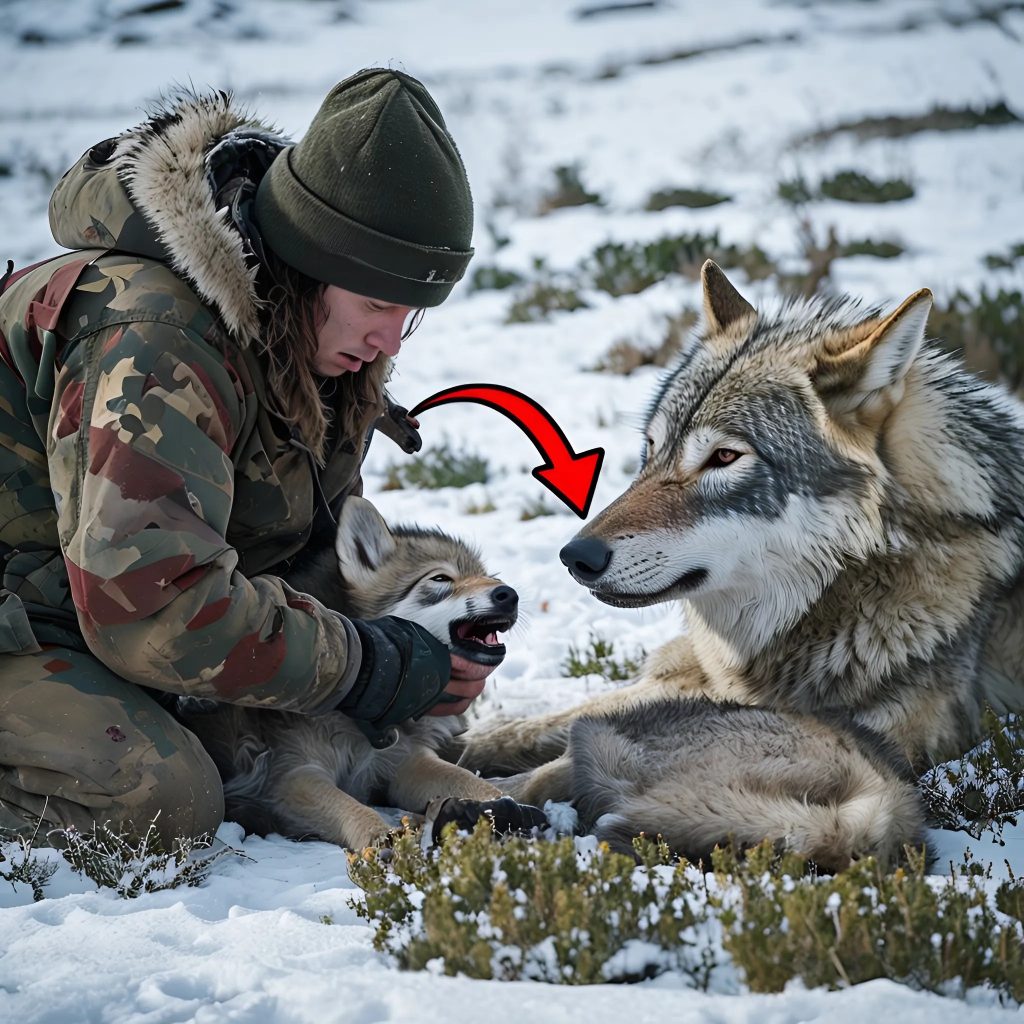
At dawn, the streets were not as they had been.
Dozens of animal carcasses—fresh, untouched, unbitten—lay placed with strange, ritual-like care throughout the village. Rabbits, pheasants, squirrels. None were mangled. None were torn apart. Each was laid gently at thresholds: by doors, under windows, at the foot of wells.
A pristine deer heart was found on the church steps. A fox laid across the mayor’s bench. The blacksmith’s anvil bore the curled form of a hare, as if placed there by invisible hands.
But at Thomas’s cabin, there were no animals.
There were wolves.
Nine of them. Sitting. Silent. Not snarling, not threatening. They formed a perfect half-circle in the snow around his porch. Their breath curled into the morning air. They didn’t move when he stepped outside. They only watched.
Then, one by one, they rose and disappeared into the tree line, leaving only their paw prints in the fresh snow. All except one—a massive she-wolf, likely the mother—who lingered a moment longer, lifted her snout slightly, and then followed.
The villagers were speechless. Some were terrified, others confused, but all understood something had happened beyond their comprehension. Rumors spread like fire on dry brush.
“They brought him offerings.”
“No. It was a warning.”
“They knew what he did. And they remember.”
Thomas said nothing. He simply returned to his cabin, made tea, and watched the trees.
From that day on, not a single wolf was seen hunting livestock. No more missing dogs. No deer torn apart in the fields. The balance had shifted—but toward peace.
Children began leaving food by the edge of the woods. Hunters left their rifles home when crossing into the forest. The village, once silent from fear of what lurked beyond the treeline, grew quiet out of respect.
As for Thomas, he never saw the wolves again.
But sometimes, on full moon nights when the sky glows pale and the wind carries secrets, he hears a howl that is not sad, nor angry, nor afraid.
